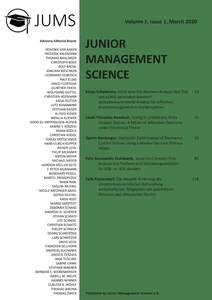
Frederick taylor (frederick winslow taylor; Taylor is known as the first engineering consultant and father of scientific management.

Dalam buku management dari james stoner memaparkan keterlibatan taylor dalam evolusi teori manajemen.
Fred taylor wissenschaftliches management. The tale of taylor and gilbreth. 3.65 avg rating — 700 ratings — published 1911 — 150 editions. Taylor made observations regarding the inexcusable work methods.
Taylor is known as father of scientific management and fayol as the father of principles of management. Frederick taylor’s other principles dr. Scientifically select, train, teach, and develop the worker.
He was one of the first management consultants. He was a mechanical engineer. He is the father of the scientific management approach.
Divide the work and responsibility. Taylor’s philosophy has undergone a big change under the influences of modern developments, but fayol’s principles of management have stood the test of time arid are well accepted even in the present days. These theories have changed how management would interact with employees.
The core ideas of the theory were In this 2016 photo, fred taylor looks at information in his green carbon guidebook. Salvatore ferraro montclair state university 1 normal drive montclair, new jersey 07043 united states abstract more than 100 years ago frederick taylor (1911) introduced the world to scientific management.
Taylor, in full frederick winslow taylor, (born march 20, 1856, philadelphia, pennsylvania, u.s.—died march 21, 1915, philadelphia), american inventor and engineer who is known as the father of scientific management. Taylor summed up his techniques in his 1911 book, the principles of scientific management, which was voted the most influential. Taylor or fredrick winslow taylor is also known as the ‘father of scientific management’ proved with his practical theories that a scientific method can be implemented to management.
He was also known as the ‘father of scientific management’. Scientific management, also called taylorism, is the application of frederick taylor’s theory to the workplace to improve economic efficiency. Taylor published “the principles of scientific management” in 1911, which explains his process of using scientific studies to analyze, optimize and standardize workflow.
Average rating 3.67 · 764 ratings · 77 reviews · shelved 3,565 times. Scientific management is a theory of management that analyzes and synthesizes workflows.its main objective is improving economic efficiency, especially labor productivity.it was one of the earliest attempts to apply science to the engineering of processes to management. Frederick wilson taylor’s scientific management theory dr.
Popularity original publication year title average rating number of pages. Fred taylor remembered for leadership, vision, generosity. In summary, frederick taylor’s four principles of scientific management are:
Taylor and the enigma of efficiency by robert kanigel, (new york: The best book on taylor is the one best way: In 1911, taylor summed up his efficiency techniques in his book the principles of scientific management which, in 2001, fellows of the academy of.
Hasebur rahman lecturer, department of business administration, pabna university of science and technology, bangladesh abstract henry fayol and frederick winslow taylor made. There are parallels between this and other aspects of modern educational reform. “develop a science for each element of…work”;
In his own words, these are: Frederick taylor was one of the first management consultants of the united states, intellectual leaders of the efficiency movement and founder of the term. Scientific management is sometimes known as taylorism after its pioneer, frederick winslow taylor.
His system of industrial management, known as taylorism, greatly influenced the development of industrial engineering and production. Frederick taylor (frederick winslow taylor; Frederick taylor was an engineer and inventor who developed the theory of scientific management.
This article will describe frederick taylor’s scientific management theory. This scientific process involved experiments, observation, analysis, and inference and was applied to create a cause and effect relationship. Taylor is known as the first engineering consultant and father of scientific management.
Roopinder oberoi assistant professor of political science kirori mall college, university of delhi scientific management also called taylorism is a theory of management that analyzes and synthesizes workflows, improving labour productivity. Dalam buku management dari james stoner memaparkan keterlibatan taylor dalam evolusi teori manajemen. Pasti kita penasaran dengan kontribusi taylor pada bidang studi manajemen sehingga bisa menghasilkan suatu kajian yang disebut manajemen ilmiah.
Its relevance to modern day management is widely debated in academic circles. He was the first to measure industrial work and apply the results to improve efficiency. Another one of taylor’s ideas was offering incentive pay to workers who worked harder to produce more.
Even so, efficiency was greatly improved by frank and lillian. At first, we know about taylor and his contributions. In this essay, i will address the question of whether scientific management has a place today, in a 21st century knowledge economy, or whether it belongs to a.
Frederick winslow taylor adalah seorang yang disebut sebagai bapak manajemen ilmiah. Learn about taylor, explore his theories and principles, and understand his contributions to modern. The principles of scientific management.
Develop a science for each element of work. Frederick winslow taylor was born on march 20, 1856, in germantown, philadelphia, pennsylvania, usa. Introduction scientific management was first described by frederick taylor in the late 19th century.